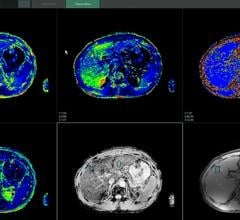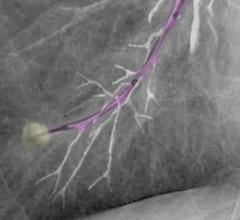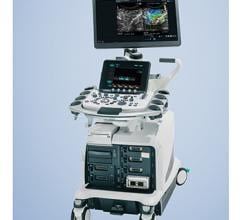September 9, 2008 – Aptium Oncology, which develops hospital-based outpatient cancer centers, will inaugurate the Aptium Oncology GI Cancer Consortium (AGICC), a consortium that aims to speed the process of finding and efficiently testing active new compounds for patients with gastrointestinal cancers, enabling useful drugs to reach the market more quickly.
The consortium consists of eight member institutions with demonstrated expertise in the multidisciplinary and translational approach to gastrointestinal (GI) malignancies, at a kick-off meeting September 28 and 29, 2008 at Christiana Care Healthcare Systems in Newark, DE.
“A number of us at Aptium Oncology have long had strong interest in advancing the state of care for GI cancers," said John S. Macdonald, M.D., chief medical officer. "With colon, stomach and other types of GI cancers affecting millions, there is considerable opportunity for introducing new drugs in GI cancer, including targeted agents that are in development but still need to be tested."
Aptium assembled a think tank of physicians from around the country - all with experience in the biology of GI cancers - to be involved in the Consortium. "And with involvement from eight cancer centers across the country, including world leaders in GI cancer, we can get drugs evaluated and, if active and likely to be helpful to patients, to market more quickly - and with less bureaucracy," said Dr. Macdonald.
The new, targeted GI drugs cited by Dr. Macdonald are currently being investigated and are the result of scientists' increased understanding of the molecular events that take place within a cell to make it cancerous. The ability to potentially target those actual molecular events represents a significant step in cancer care, and is vastly preferable to cytotoxic drugs that kill large numbers of cancer cells, but also kill normal tissue, which can typically lead to severe side effects during treatment.
AGICC is an innovative model that brings investigators together to test drugs as they come along, in contrast to pharmaceutical company-driven studies that typically are created to test a specific drug. "There are about 160,000 new colon cancer patients a year," noted Dr. Macdonald. "In addition, only about fifty percent of all colon cancer patients survive five years. If we look at the patients whose cancer has metastasized, the five-year survival rate is only 10-15 percent. These patients with a very a poor prognosis are the group we want to target, in order to improve their survival rates and quality of life. And if we’re successful, the Consortium can serve as an important model for speeding time to market for drugs targeting other cancers. The Consortium underscores Aptium Oncology's commitment to innovative research on behalf of all patients with cancer."
Accordingly, a key goal of the Consortium is to design a new process for clinical trials that is faster, more efficient and less bureaucratic, allowing institutions to more rapidly take new drugs into test protocols, ultimately identifying those that are most effective.
"There currently are a number of compounds for treating GI cancers of the colon, rectum, liver, stomach, pancreas and esophagus," said Lawrence Leichman, M.D., F.A.C.P., director of the Consortium. Dr. Leichman, National Program Director of GI Malignancies, Aptium Oncology, and medical oncologist at the Comprehensive Cancer Center at Desert Regional Medical Center in Palm Springs, added, "However, while our drug choices are more varied and effective, none of the compounds on the market for GI cancers are as effective over the long term as we would like. We have already made great advances in understanding the molecular biology of many GI cancers. The consortium will help us take advantage of that knowledge and advance the research needed to get the new drugs on the radar screen and get these new treatments on the market - and to our patients - sooner."
Each of the eight institutions selected for the consortium is funded for two years via a support grant to be used in expanding and supplementing their ongoing clinical/translational gastrointestinal cancer programs. The consortium includes five university cancer center programs and three large private groups:
USC/Norris Gastrointestinal Oncology Program, University of Southern California; Vanderbilt-Ingram Cancer Center, Vanderbilt University; University of Colorado Cancer Center; University of North Carolina Lineberger Comprehensive Cancer Center; NYU Langone Medical Center; Fox Chase Cancer Center Partners; Swedish Cancer Institute, Seattle, WA; and Christiana Care’s Helen F. Graham Cancer Center in Newark, DE.
For more information: www.aptiumoncology.com


 December 23, 2019
December 23, 2019 








